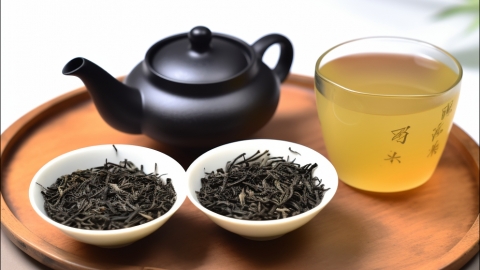What kind of tea is good for nourishing the stomach and treating stomach diseases?
Generally, drinking teas such as clove tea, black tea, barley tea, goji berry and red date ginger tea, and pu'er tea can help nourish the stomach and treat stomach ailments. Detailed explanations are as follows:

1. Clove Tea
Clove tea is warm in nature and contains eugenol, clove oil, and other components. It has the effects of warming the middle jiao, lowering rebellious qi, and nourishing the stomach. It can stimulate gastric juice secretion, promote gastrointestinal digestion and absorption, and relieve gastrointestinal discomfort. Regular consumption of clove tea can also alleviate abdominal bloating, enhance digestive function, and reduce symptoms such as nausea and vomiting.
2. Black Tea
Black tea is a fermented tea. Under the action of oxidase, polyphenols undergo enzymatic oxidation reactions, reducing the content of tea polyphenols, thus causing relatively less irritation to the stomach. Meanwhile, oxidation products in black tea can promote digestion and contain substances such as catechins and polyphenolic compounds that offer certain protective effects on the gastric mucosa.
3. Barley Tea
Barley tea contains various essential trace elements, amino acids, vitamins, unsaturated fatty acids, proteins, and dietary fiber. These components can effectively protect the gastric mucosa without causing irritation to the stomach. Additionally, barley tea can increase gastric acid and pepsin secretion, aiding digestion and reducing greasiness.
4. Goji Berry, Red Date, and Ginger Tea
Red dates are rich in vitamins and proteins and have a stomach-nourishing effect, while goji berries have the function of nourishing the liver and kidneys. Adding ginger helps dispel cold. Drinking these three together can improve gastrointestinal discomfort and symptoms such as dry mouth and throat.
5. Pu'er Tea
Pu'er tea contains some dietary fiber that can promote gastrointestinal digestion. Moreover, components such as tea polysaccharides and pu'erstatin in pu'er tea help inhibit cholesterol synthesis. Additionally, pu'er tea has a warming effect on the stomach, protects the gastric mucosa, promotes gastrointestinal motility, and alleviates stomach discomfort caused by gastritis.
The choice of stomach-nourishing tea should be based on individual constitution and gastric conditions. If the stomach condition is severe, it is recommended to seek timely medical consultation and follow the guidance of a physician for treatment. Furthermore, maintaining regular meals and avoiding unhealthy eating habits such as overeating is also important in daily life.








